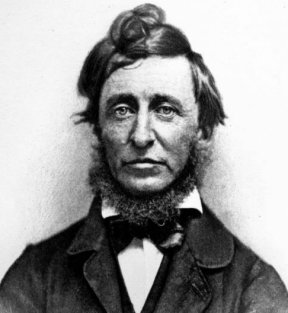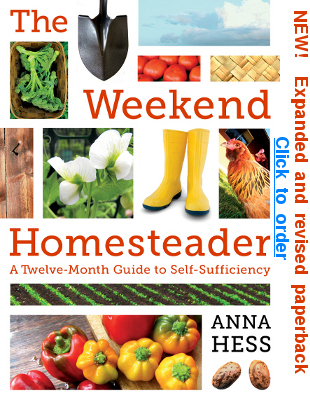
Who was Thoreau?
 Those
of you who are taking the slow and steady approach to reading the
first chapter of Walden are finally making your way
out of the philosophical part of the chapter and into the nitty gritty
--- what a relief! Meanwhile, the fast readers who are waiting
for the rest of us to catch up might be interested
in the essay titled "Thoreau" by his friend Ralph Waldo Emerson.
Those
of you who are taking the slow and steady approach to reading the
first chapter of Walden are finally making your way
out of the philosophical part of the chapter and into the nitty gritty
--- what a relief! Meanwhile, the fast readers who are waiting
for the rest of us to catch up might be interested
in the essay titled "Thoreau" by his friend Ralph Waldo Emerson.
Mom recommended the
additional reading material, which is really a heart-felt eulogy and
character sketch. I'm glad she did. The 21 page essay is
easier to read than Walden, and it made me like Thoreau
a lot better. You can read the essay online (or download it) here --- skip ahead to page 207
to find the part I'm talking about.
Here are some teaser
quotes:
"I love Henry," said one of his friends, "but I cannot like him; and as for taking his arm, I should as soon think of taking the arm of an elm tree...."
No college ever offered him a diploma, or a professor's chair; no academy made him its corresponding secretary, its discoverer, or even its member. Perhaps these learned bodies feared the satire of his presence....
There is a flower known to botanists, one of the same genus with our summer plant called "Life-Everlasting", a Gnaphalium like that, which grows on the most inaccessible cliffs of the Tyrolcsc mountains, where the chamois dare hardly venture,
 and which the hunter, tempted by its
beauty, and by his
love (for it is immensely valued by the Swiss maidens), climbs the
cliffs to gather, and is sometimes found dead at the foot, with the
flower in his hand. It is called by botanists the Gnaphalium
leontopodium, but by the Swiss Edelweiss, which signifies Noble Purity.
Thoreau seemed to me living in the hope to gather this plant, which
belonged to him of right. The scale on which his studies proceeded was
so large as to require longevity, and we were the less prepared for his
sudden disappearance.
and which the hunter, tempted by its
beauty, and by his
love (for it is immensely valued by the Swiss maidens), climbs the
cliffs to gather, and is sometimes found dead at the foot, with the
flower in his hand. It is called by botanists the Gnaphalium
leontopodium, but by the Swiss Edelweiss, which signifies Noble Purity.
Thoreau seemed to me living in the hope to gather this plant, which
belonged to him of right. The scale on which his studies proceeded was
so large as to require longevity, and we were the less prepared for his
sudden disappearance.
For those of you who are
waiting until the last minute, you've still got a week before we'll
start discussing chapter one of Walden. Don't forget!
Want more in-depth information? Browse through our books.
Or explore more posts by date or by subject.
About us: Anna Hess and Mark Hamilton spent over a decade living self-sufficiently in the mountains of Virginia before moving north to start over from scratch in the foothills of Ohio. They've experimented with permaculture, no-till gardening, trailersteading, home-based microbusinesses and much more, writing about their adventures in both blogs and books.
Want to be notified when new comments are posted on this page? Click on the RSS button after you add a comment to subscribe to the comment feed, or simply check the box beside "email replies to me" while writing your comment.
